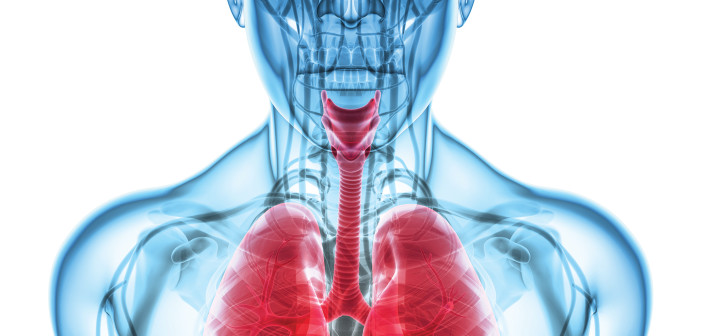In the United States, lung cancer is, by far, the leading cause of cancer death among both men and women. Each year, more people die of lung cancer than of colon, breast, and prostate cancers combined.
Dr. Peter Rydesky, Radiologist and Physician Lead for the Lung Screening Program at Genesys Health System, sees both the firsthand benefits of a lung screening and the many adverse health effects of cigarette smoking. Dr. Rydesky explains, “results from the National Lung Screening Trail are extremely encouraging, as we can now confidently say screening high-risk individuals with low-dose chest CT (Computed Tomography) reduces their risk of dying from lung cancer. Although this is an impactful step forward in the fight against lung cancer, quitting smoking remains the single most important thing any smoker can do to reduce their chances of developing or dying from lung cancer.”
The American Lung Association (ALA) warns that most symptoms of lung cancer do not appear until the disease is in an advanced stage. Many people go misdiagnosed for years because their symptoms are similar to other diseases, such as pneumonia, allergies or a cold. Lung cancer is often discovered too late to be treated successfully. According to the ALA, more than half of people with lung cancer die within one year of being diagnosed.
Despite these grim statistics, studies show that people who receive a low-dose CT lung screening have a 20 percent lower chance of dying from lung cancer because it’s detected at the earliest possible stage, when the disease has the greatest chance of being cured with early treatment. Innovations in diagnostic tools, technology and targeted therapies give healthcare providers the opportunity to save more lives.
Genesys Cancer Care Services works to reduce preventable lung cancer deaths by offering a lung screening program. Rebecca Banat, Oncology Service Line Director at Genesys says, “low-dose CT is a safe, quick and painless study that collects 3-D images from all angles around the chest of the lungs, providing details that enable radiologists to detect tiny abnormalities.” She added, “there’s a lot of shame and blame with lung cancer that causes people to put off seeking medical attention, but research shows that early detection provides the best hope for a cure.”
Low-dose CT lung screening is recommended for high-risk patients who are:
- Adults age 55 to 80 (77 with Medicare)
- No signs or symptoms of lung cancer
- Currently smoking or have quit smoking within the last 15 years
- Smoked at least 30 pack years (one pack a day for 30 years or two packs a day for 15 years)
- Adults age 50 and older with a 20+ pack year history and one additional risk factor (family history of lung cancer, emphysema, pulmonary fibrosis or exposure to certain carcinogenic substances)
You have options for where to receive your screening. Talk with your Primary Care Physician and they can provide a referral. The radiologists at Genesys will provide expert radiological interpretation, and patients receive a personalized, efficient screening. A thorough report and recommendation is sent to your Primary Care Physician. For a screening with a positive result, an interdisciplinary lung nodule review is completed by a team of doctors. Patients then have immediate access to experts in the treatment of lung cancer.
Most insurance providers cover all or most of the screening cost. Medicare will cover the screening annually for those who meet the criteria. A self-pay option is also available at Genesys.
The Patient Navigator at Genesys can provide details and education to see if you’re a candidate and to help you make an informed decision. Call 810.678.9251 to learn more.
“There’s a lot of shame and blame with lung cancer that causes people to put off seeking medical attention, but research shows that early detection provides the best hope for a cure.”
Rebecca Banat, Service Line Director
Genesys Oncology








